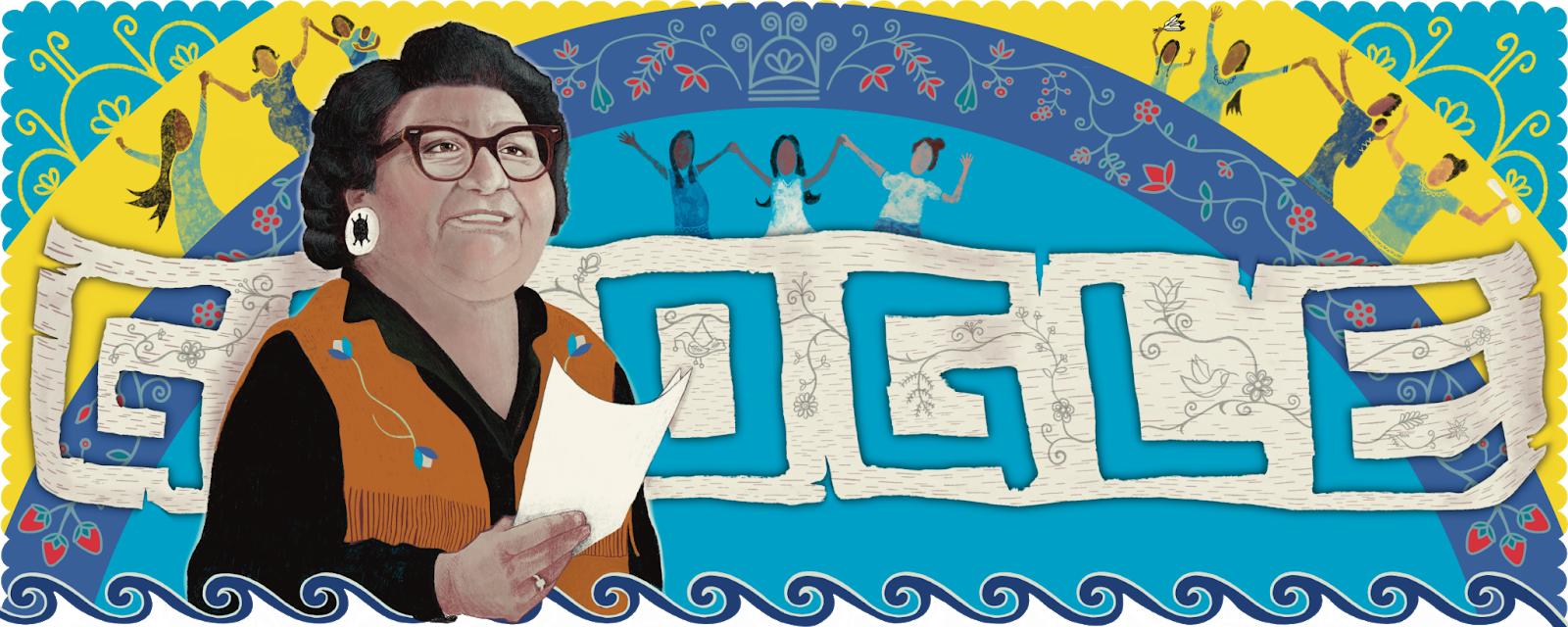
- Details
- By Andrew Kennard
Monday’s Google Canada Doodle honors the life and legacy of Mary Two-Axe Earley (Mohawk), a First Nations women’s rights activist, on the 36th anniversary of the Act to Amend the Indian Act in Canada. The Indian Act was amended after nearly two decades of Two Axe Early’s activism against provisions that stripped First Nations women of their Indian status when they married non-Indigenous men.
Want more Native News? Get the free daily newsletter today.
“I had a vision that I, one day, would be free again, to be an Indian,” Two-Axe Early said in a recording in the trailer of “Mary Two-Axe Early: I Am Indian Again,” an upcoming documentary film with the National Film Board of Canada by Courtney Montour (Mohawk). “I married a white man in 1938, and yet there’s that law that you’re not Indian anymore when you marry a non-Indian. We lose our right to vote here, we lose our property.”
In a Google guest blog post, Montour said that Two-Axe Early was a “key figure” in Canada’s women’s rights movement. She noted that Two-Axe Early helped establish the Equal Rights for Indian Women organization, spoke out at the 1968 Royal Commission on the Status of Women in Ottawa, and fought for First Nation women’s rights “through associations, impassioned speeches, and letter campaigns.”
Mohawk artist Star Horn, who created the Doodle, said in a Q&A with Google that she was inspired by old clips of Two-Axe Early in Montour’s documentary film.
“I was also inspired by our traditional beadwork and art,” Star Horn added. “I wanted to incorporate symbols and images that were meaningful and beautiful to us, to show everyone that we still hold this incredible ability to create our own visual language and that it is important to keep sharing that. All of Mother Earth, nature, and more is incorporated into our art and regalia. We still make and wear those symbols signifying the inextricable connectedness that everyone has with nature (there is no separating the Mind, Body & Spirit from it).”
Two-Axe Early also received the National Aboriginal Achievement Award, Governor General’s Award, and an honorary doctorate in law from York University. She passed away in 1996 at the age of 84.
“Mary garnered the support of influential political figures and women’s rights activists. She led with love, compassion and persistence, something that I see so many of our women carrying with them as they continue this crucial work for sex equality,” Montour wrote in the Google guest blog post.
More Stories Like This
Native News Weekly (August 25, 2024): D.C. BriefsUS Presidents in Their Own Words Concerning American Indians
Ethics Complaint Alleges Former Navajo Nation Chief of Staff Accepted Gifts From Contractor
Monday Morning (December 14, 2025): Articles You May Have Missed This Past Weekend
Native News Weekly (December 14, 2025): D.C. Briefs
Help us defend tribal sovereignty.
At Native News Online, our mission is rooted in telling the stories that strengthen sovereignty and uplift Indigenous voices — not just at year’s end, but every single day.
Because of your generosity last year, we were able to keep our reporters on the ground in tribal communities, at national gatherings and in the halls of Congress — covering the issues that matter most to Indian Country: sovereignty, culture, education, health and economic opportunity.
That support sustained us through a tough year in 2025. Now, as we look to the year ahead, we need your help right now to ensure warrior journalism remains strong — reporting that defends tribal sovereignty, amplifies Native truth, and holds power accountable.
 The stakes couldn't be higher. Your support keeps Native voices heard, Native stories told and Native sovereignty defended.
The stakes couldn't be higher. Your support keeps Native voices heard, Native stories told and Native sovereignty defended.
Stand with Warrior Journalism today.
Levi Rickert (Potawatomi), Editor & Publisher

